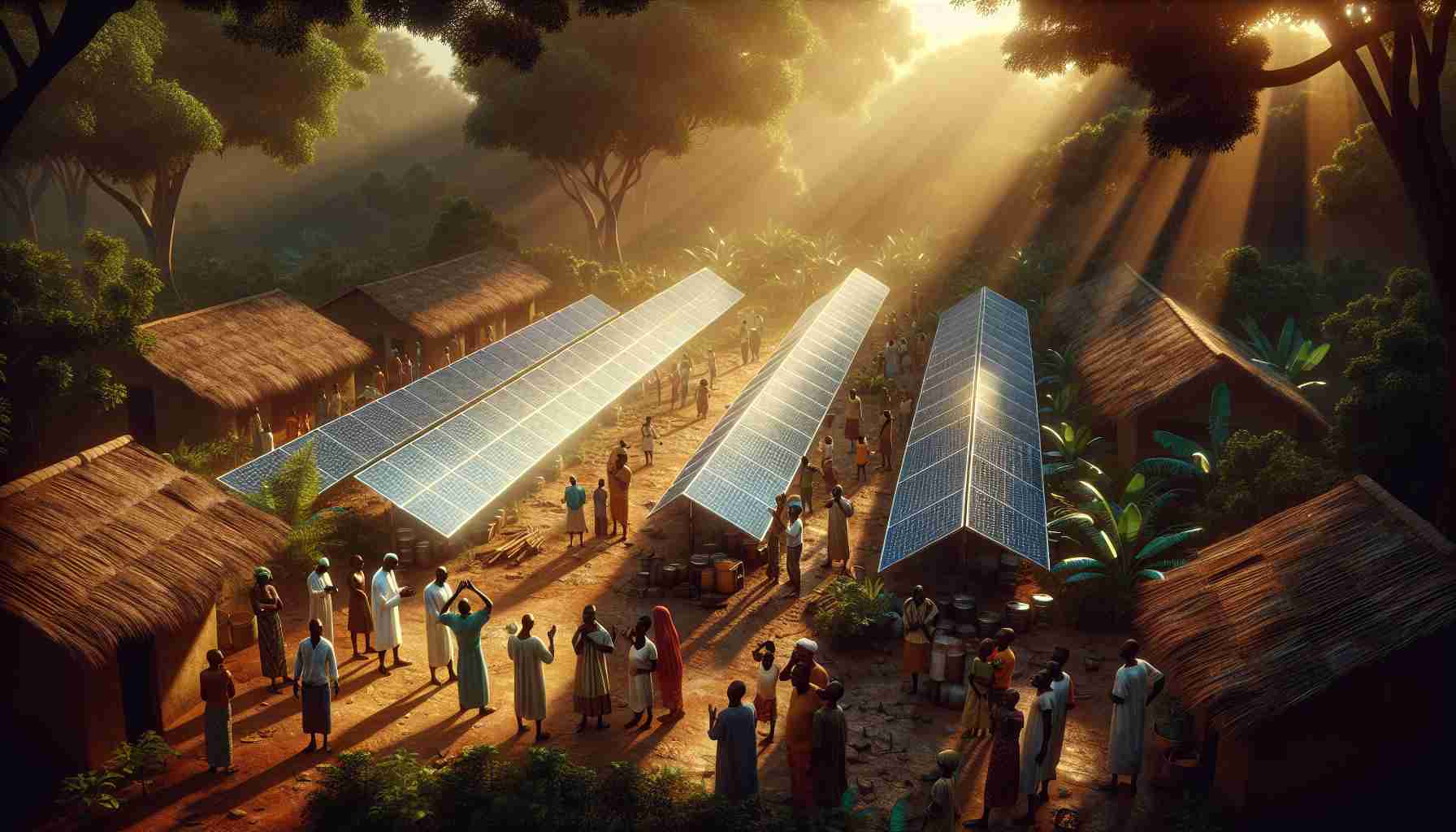Sierra Leone to Energize Rural Areas with Innovative Financing for Solar Minigrids
Sierra Leone’s government is teaming up with the European Union to introduce a cutting-edge financing strategy aimed at expanding solar minigrids throughout the nation. This initiative, known as results-based financing (RBF), will provide incentives to private developers, allowing them to fund, construct, and manage minigrids based on the number of connections they establish.
The initiative intends to electrify 35,000 households, with grants awarded only after certain progress markers are validated. The collaborative effort will see the European Union contributing €20 million ($20.6 million) to support this ambitious project.
Significant potential exists for solar energy in Sierra Leone, as the Ministry of Energy has pinpointed 703 locations ideal for minigrids, identified through its comprehensive electrification database. Currently, over 100 solar minigrids are operational, managed by various private sector players.
According to the EU Ambassador to Sierra Leone, the implementation of the RBF model is a transformative measure for the nation, paving the way for substantial improvements in rural electrification. With the framework in place, the government and its partners are poised to enhance energy access, ultimately fostering sustainable development across the region. This initiative represents a remarkable opportunity to harness renewable energy and improve the quality of life for many Sierra Leoneans.
Powering the Future: Innovative Financing Expands Solar Minigrids in Sierra Leone
Introduction
Sierra Leone is on the brink of a significant energy transformation with the introduction of innovative financing for solar minigrids, thanks to a partnership between the government and the European Union. This initiative aims to electrify rural areas by incentivizing private developers through a results-based financing (RBF) approach, revolutionizing how energy is accessed in underserved regions.
What is Results-Based Financing (RBF)?
Results-based financing (RBF) is a strategic approach whereby funding is allocated based on the achievement of specific results or milestones. In the context of Sierra Leone, this means that private developers will receive grants after demonstrating success in establishing connections to the electric grid.
Key Features of the Initiative
– Target Electrification: The program aims to electrify 35,000 households, significantly improving energy access for rural communities.
– Financial Commitment: The European Union is contributing €20 million (approximately $20.6 million) to this initiative, demonstrating strong international support for sustainable energy solutions.
– Validation Process: Grants will be disbursed only after progress markers are verified, ensuring accountability and effective use of resources.
Current Landscape of Solar Energy in Sierra Leone
Sierra Leone has identified 703 optimal sites for solar minigrids as part of a comprehensive electrification strategy. Currently, over 100 operational solar minigrids are already providing electricity, showing a growing interest among private sector players in this renewable energy field.
Pros and Cons of Solar Minigrids
Pros:
– Sustainability: Utilizing renewable energy reduces dependence on fossil fuels.
– Economic Growth: Improved energy access can stimulate local economies and attract investment.
– Health and Education Benefits: Reliable electricity can lead to better health services and educational opportunities.
Cons:
– Initial Costs: The capital required for setup can be significant, although RBF aims to alleviate this concern.
– Maintenance Challenges: Continued support and funding are necessary for long-term sustainability and operation.
– Geographic Limitations: Some rural areas may still face challenges due to geographic remoteness.
Market Analysis and Future Trends
The solar energy sector in Sierra Leone is poised for considerable growth. With the global push for renewable energy gaining momentum, the framework established by this initiative could serve as a model for other countries in similar circumstances. The growing demand for sustainable energy solutions is likely to encourage further investments in solar technology and infrastructure across the region.
Predictions for the Future
As more private investors engage in the solar energy market due to the RBF incentives, it is predicted that Sierra Leone will not only meet its electrification goals but could also position itself as a leader in renewable energy within West Africa. As access to electricity improves, there is potential for enhanced quality of life, ultimately leading to broader economic development.
Conclusion
Sierra Leone’s innovative financing model for solar minigrids signifies a transformative step towards achieving rural electrification and promoting sustainable development. As the government and the European Union commence this ambitious project, it serves as an inspiring example for other nations facing similar energy challenges.
For more insights on renewable energy initiatives, visit the European Union website for up-to-date information and resources.
